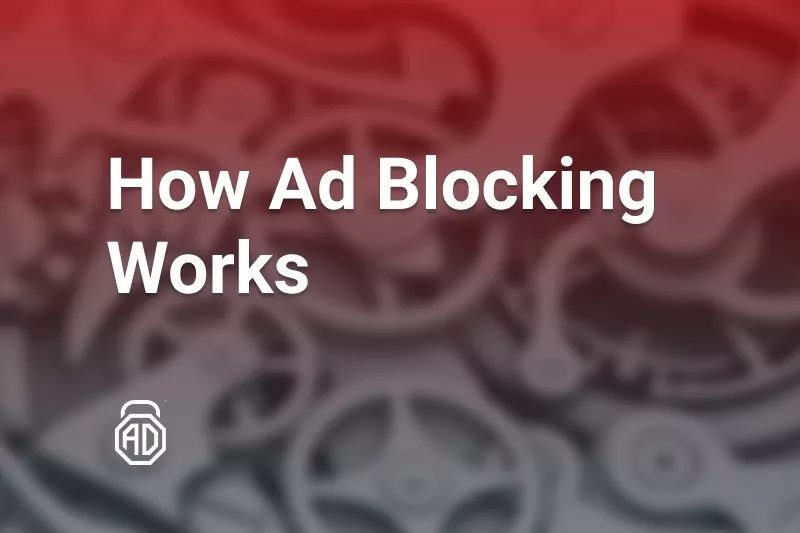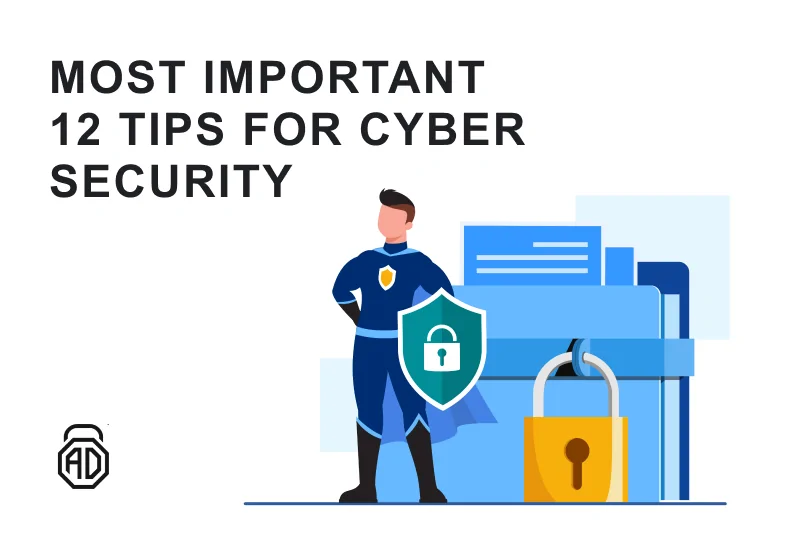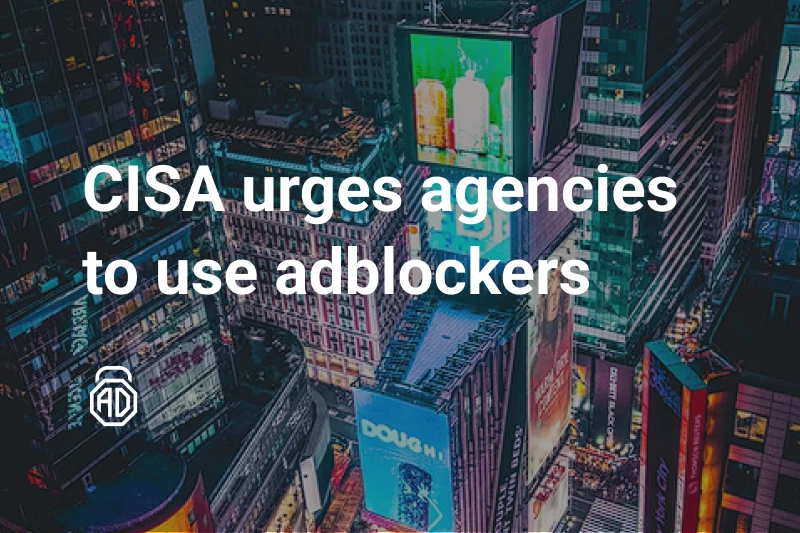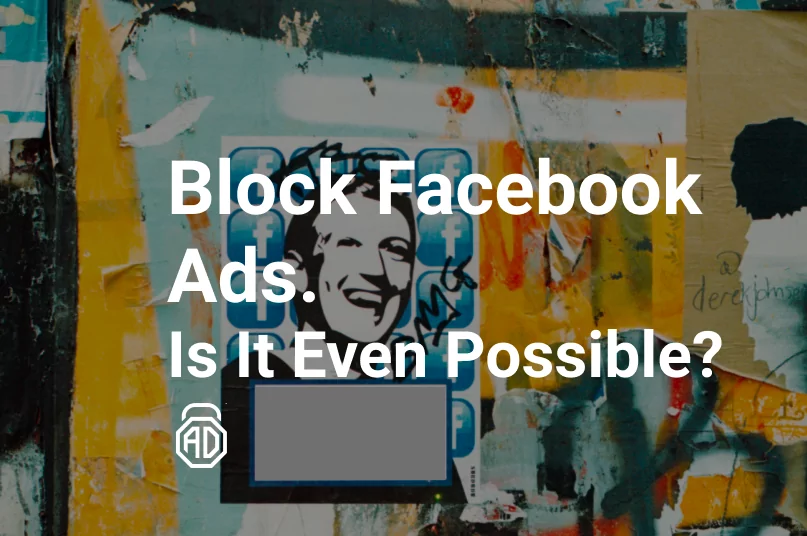Why Ad-blocking is Both Ethical and Beneficial for Everyone
Online advertising is the most annoying thing when it comes to Web surfing. Not only adverts pop out of the blue and distract you from reading articles or watching videos, but also they make it less safe and more costly to use the Internet. Whilst most users suffer from the diversity of online ads, there is an advanced minority who knows how to cope with them.
There are dozens of different adblocking tools on the market giving a leg to people around the world in their fight for a clean Internet experience. From lightweight browser extensions to full-fledged software, people stick to the most convenient solutions that solve their particular issues.
One would wonder “If brands splash tons of bucks to promote goods and services online, is it even ethical to use adblockers?” and they would have a point. We have answers to questions about the ethicality of blocking ads. Buckle up!
In our previous articles, we’ve described all the ways to remove online ads, as well as explained how to remove ads from uTorrent and dozens of other online services. If you somehow missed our articles, then go ahead and check out our blog!
Contents
Benefits of Ad-blocking

Photo credit: Luis Villasmil
There’s an open discussion going on about the permissibility and the moral aspect of blocking online ads. Internet publishers claim ad-blocking tools not to be an ethical solution and provide arguments to protect their advertisement income. One can easily get confused: I want to have ad-free browsing but also I feel bad about my favorite website losing its revenue because of me using an ad blocker. However, we believe that in the long run ad blocking will benefit not only users but also publishers themselves. And here are some ideas that will help you keep peace of mind while enjoying an ad-free Web surfing experience.
- Adblocking stimulates online development
Intrusive online ads based on pay-per-click and pay-per-watch models make the Internet primitive and useless. The original idea of websites supporting their finance with relevant online ads in the corner was great. But then we came to the point where websites are being created just for displaying ads. Publishers are not checking the links they promote because they don’t care who pays them money. In the same way, they don’t care about user experience in general. Blocking ads online would stimulate publishers and website owners to improve the content they provide.
- It forces changes in imperfect laws
The legal situation around online advertisement remains unclear. There are no precise definitions of what an online ad can be, and when it should be considered unacceptable. European and American authorities are using regulations created for online cookies or intellectual property to proceed with lawsuits on online ads, and it doesn’t satisfy people’s needs in online protection. The worldwide ban on online ads initiated by users themselves will force states to adapt to these changes. As well as it would introduce specific laws protecting consumers’ rights against ads on the Web.
- It increases safety and privacy on the Web
Not only fraudsters are using online ads as a loophole to access people’s devices and data but also traditional companies. Virtually every single online ad server tracks your activity on the Web and shares your data with a third party. This is also how corporations and governments know about you, your interests, and your secrets. Adblocking is vital for maintaining anonymity, online safety, and security.
- It provides more control to the users
Do you feel helpless when waiting for a stupid autoplay video advert to finish before your desired Youtube piece begins? We know your pain. Disrupting our online activities with adverts makes us hate the brand and product but not desire to buy it. We all want to decide how to use our time and resources on our own. And that includes not only blocking the ads when we don’t need them but also whitelisting the ad filters for the websites we support.
- It changes the industry to better
Without having a need to make users click whatever online ads marketers would come up with better, more sophisticated approaches. Targeted advertising, product placement, promotional partnership are the technologies bringing us to the next stage of ad industry development. We generally don’t mind a non-intrusive brand promoting when it gives us a real quality product along. Watching ads just for the ads is something that has to be left behind.
Is Blocking Ads Legal?

Photo credit: Tobias Moore
The answer is yes. There are no laws restricting you from using ad blocking technologies and no one can force you to watch any ads. Recent lawsuits of the publishers against their commercials being blocked have just strengthened the position of adblocker developers on the Web. IAB Europe, the EU regulator for the digital advertising ecosystem, stated that ad blocking detection without users’ consent is illegal. Yet, many websites break this law statement which just makes us hate online ads even more. In the US online advertisement agency tried to use the Digital Millennium Copyright Act to prevent ad blockers from blacklisting their domain. As a result, their service was removed from Easylist, but no court in the world would disallow people from blacklisting it manually. This situation only attracted another number of conscious users to the side of advertisers’ ideological rivals.
Why do You Block Ads?

Photo credit: Evan Krause
This question was asked in the poll offered to US Web users as a part of a recent Hubspot study. The results would just confirm that you’re not the only one frustrated by online ads. 64% of respondents admitted that ads are annoying/intrusive and 54% said that ads disrupt what they do online. 39% of Internet users mentioned security concerns and 32% are worried about their internet privacy being compromised by online ads. Among the most popular reasons for blocking commercial content are also bandwidth consumption and page loading time being drastically increased by ads. That is especially true for mobile users since online ads might eat up almost half of your data plan! In general, people find ad content being inappropriate and advertising formats aggressive. So that they don’t want to support businesses making money this way. Can you find yourself having the same concerns? It’s time to get your ad blocker.
Is it Ethical to Use an Adblocker?
Here’s our point.
Advertisers are no masters of the Internet as its fundamental philosophy is free access. We all have equal rights online. The world wide web inventor could have patented his invention and made a fortune, but he did not. Why? Because his intentions were to better the society, provide it with an invaluable tool. So why would websites be guaranteed to make money from us accessing the FREE TO USE web?
Advertising exists to make us buy the stuff we don’t really need, or don’t want. Most goods and services promoted on the Internet eat up system resources and the battery of your device. Not seeing adverts means you save up money on a data plan (because you use fewer MBs) and make the battery live longer.
Advertisers are experts at manipulating you, your choices, and opinions. They shove goods and services down our throats making us love that promoted stuff and buy it. The only thing they don’t understand or don’t want to is that every individual has the right to choose themselves and protect themselves from versute manipulations by blocking all commercial content.
Do Ad Blockers Block AdWords?

Photo credit: Jeremy Downes
Google AdWords, or what it is called now Google Ads, is on top of the vicious pyramid of the global online advertising industry. It’s a huge system based on cookies and keywords collected by Google. It makes corporations even more insanely rich by selling the partner websites ad space to private companies. Google AdWords was repeatedly accused of complicity with Internet fraudsters, insufficient suppression of abuse, and unfair competition. Yet, it is still the most powerful and widespread service for online advertising in the world. Millions of users suffer every day from AdWords’ intrusive activity on the Web. Same time most of them are not even aware of how much personal data they give up to advertisers through Google ad windows. Their sophisticated tools are hard to fight with for most of the adblocking solutions on a market. However, there is an ad blocker that provides reliable protection from Google AdWords intervention in our digital lives — AdLock. Designed both for PC and mobile, this “stop ad” software can eliminate ads from your daily online activity and ensure safety on the Web.
What does AdLock do?

Photo credit: Paweł Czerwiński
AdLock is a comprehensive ad-blocking tool that would become your Internet guardian. Unlike most of the other ad blockers, AdLock is not selective when it comes to the ads to be blocked, and by no means, it collaborates with rich advertising platforms. It works perfectly with all different kinds of ads seen on the Web: pop-ups and banners, video ads, cryptocurrency mining ads, and so on. Besides its main function, AdLock has a handful of other great features:
- Malware protection;
- Harmful links detector;
- Private data guard;
- Traffic and battery saver;
- Smart whitelist function;
- Boosted page loading time;
- Annoyances removal filter;
- Many more useful features.
AdLock has a big advantage compared to other free ad blockers since it doesn’t compromise with major ad platforms and has remarkably good reviews from users of any IT knowledge level. Using AdLock is seamless and easy, so try it out for 14 days free trial. Test it on your PC and mobile, and you’ll see how to block all ads on Dailymotion or disable third-party cookies in Chrome without too much hassle. Blocking annoying ads on Pinterest or any other social media of your choice was at no time so convenient and reliable as when using AdLock. There are so many reasons to block online ads so why don’t you start right now?





